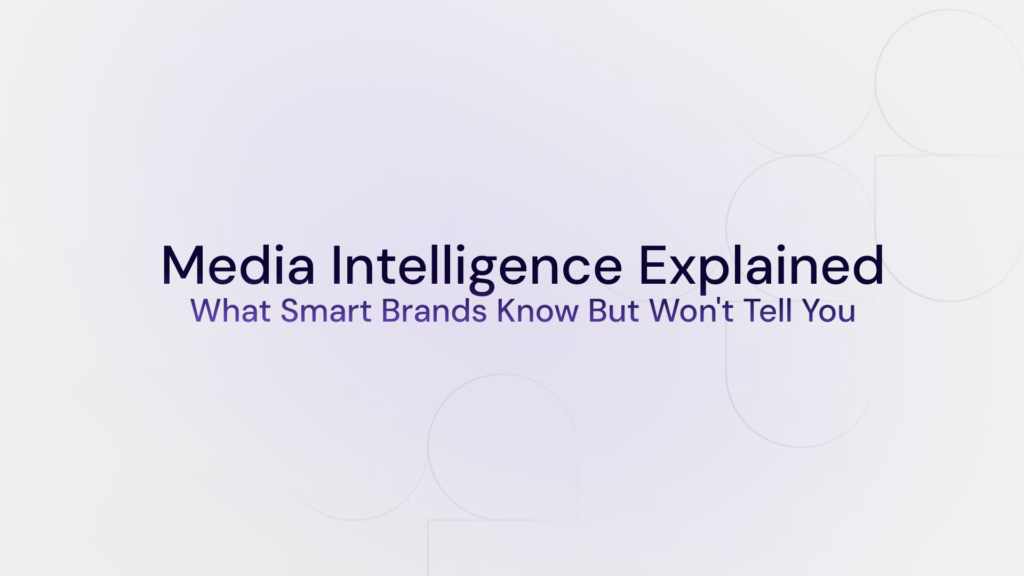6 min read
AI in Healthcare: Successes, Pitfalls, and Lessons

The COVID-19 pandemic has undeniably acted as a catalyst for the advancement and widespread adoption of digital technology and AI-based health solutions. The imperatives of remote care, swift diagnostics, and effective treatment strategies have created an opportune environment for AI to showcase its capabilities. From analyzing medical images and identifying patterns in patient data to predicting disease progression, AI has demonstrated its potential for earlier detection and more targeted interventions. Virtual assistants and chatbots have played a pivotal role in disseminating information, addressing queries, and streamlining appointments, thus alleviating the burden on healthcare providers. In this transformative era, Semantic Visions’ solutions can provide a clear picture of AI-powered healthcare, enhancing risk monitoring and opportunity assessment for professionals navigating the dynamic healthcare landscape.
How We Help: A Snapshot for Investors
- Risk & Opportunity: Our solutions assess risks and highlight opportunities, comprehensively understanding the evolving healthcare AI landscape.
- Global Media Monitoring: Stay informed with our vast network, analyzing 1.1M daily news articles from 220K+ domains, ensuring you’re ahead on trends and developments.
- Nuanced Evaluation: We guide investors in scrutinizing claims, contracts, and financial stability, fostering a nuanced approach to decision-making.
The Booming AI Healthcare Market:
The market for AI healthcare services is experiencing rapid growth, fueled by a convergence of technological advancements, rising healthcare costs, and the aforementioned global pandemic. According to a 2023 report by Allied Market Research, the global market for AI healthcare services is poised to reach a staggering $67.5 billion by 2025, boasting a Compound Annual Growth Rate (CAGR) of 16.8% from 2020 to 2025. Further affirming this trend, a report by McKinsey Global Institute estimates that AI has the potential to save the healthcare industry up to $150 billion annually by 2026.
Technological Advancements:
In a landmark study published in Nature Medicine in 2022, AI algorithms demonstrated a remarkable 99% accuracy in the detection of breast cancer, surpassing the capabilities of human radiologists. The prowess of AI extended to the realm of neurology, as evidenced by a 2021 study in Alzheimer’s Research & Therapy, where an AI algorithm identified subtle signs of Alzheimer’s disease in brain scans years before symptoms manifested. Additionally, a 2023 report by the World Health Organization highlighted the efficacy of AI-powered chatbots, accurately answering 80% of patient queries, thereby significantly reducing the workload on healthcare staff and enhancing patient satisfaction.
Rising Healthcare Costs:
A 2022 study by the Healthcare Financial Management Association (HFMA) underscored the potential of AI-powered administrative automation tools to save U.S. hospitals up to $1 million annually. Building on this, a 2023 report by the Johns Hopkins Bloomberg School of Public Health estimated that AI-powered remote patient monitoring systems could reduce hospital readmission rates by 10%, translating to an estimated annual saving of $27 billion. The American Medical Association (AMA) contributed further insights in a 2021 study, concluding that AI-powered early disease detection tools could prevent 30% of avoidable hospitalizations, resulting in an annual saving of approximately $15 billion.
Managing the COVID-19 Pandemic:
AI has played a pivotal role in managing the complexities of the COVID-19 pandemic. Software applications have been instrumental in containing outbreaks, with a 2022 study by the University of Oxford reporting a 20% reduction in infection rates. Moreover, virtual consultations powered by AI have emerged as a cornerstone in providing care during the pandemic, reducing the risk of hospital overcrowding and viral transmission, as emphasized in a 2022 report by McKinsey & Company.
Challenges in the Health Tech Market:
The surge in health tech investments during the pandemic led to a remarkable number of Initial Public Offerings (IPOs), with a record 33 health tech companies going public in 2021, collectively raising $76.9 billion. Several of these newly public companies achieved “unicorn” status, valued at over $1 billion. However, the euphoria was short-lived. By the end of 2022, three companies from the class of 2021 had gone bankrupt, and twelve had lost more than 90% of their initial value. This included notable cases such as Bright Health Group and Cue Health.
Case Studies in Caution:
Bright Health:
Bright Health Group was a health insurance company that used AI to make decisions about pricing and underwriting. However, the company’s business model was unsustainable, and it was eventually forced to file for bankruptcy in 2022.
Cerebral:
Founded in 2019, Cerebral aimed to democratize mental health care through a digital platform, connecting patients with licensed clinicians for behavioural health resources and prescriptions. Despite achieving a $4.8 billion valuation and forming partnerships with health insurers, Cerebral faced significant challenges, with reports of alleged overprescription of ADHD medications leading to a U.S. Department of Justice investigation in 2022. Furthermore, the Federal Trade Commission initiated a separate probe into concerns about Cerebral’s advertising practices, including billing issues and difficulties in canceling subscriptions.
Babylon Health:
The UK-based telemedicine startup Babylon Health, despite offering various virtual healthcare services, filed for bankruptcy in 2023. Criticisms included high valuation, lack of profitability, and accusations of overstating the effectiveness of its AI-powered chatbots.
Investing in AI-Powered Healthcare:
In the context of AI’s potential impact on healthcare, adopting a cautious and thorough approach is crucial for investors seeking meaningful insights. Semantic Visions plays a role in guiding investors through this process, assisting them in a detailed examination of AI-powered healthcare entities. Our utilization of proprietary technology facilitates a comprehensive due diligence process, enabling investors to form informed perspectives on the possibilities and risks associated with healthcare startups.
In Conclusion:
At Semantic Visions, we understand that the intersection of considerable promise and the necessity for careful assessment defines the terrain of healthcare AI investment. We aim not to embellish but to facilitate a nuanced evaluation, guiding investors in scrutinizing claims and thoroughly examining the technological foundations, leadership competency, historical performance, new regulations, new partnerships, contracts, and financial stability of AI-powered healthcare companies. Our solutions monitor an extensive network of over 220,000 unique domains, encompassing approximately 900,000 sources. We diligently collect and analyze over 1.1 million news articles daily, sourced from diverse online global media outlets in 12 languages. Our process entails automated source discovery, classification, ranking, and evaluation, determining the value of each source. In aligning with us at Semantic Visions, investors can traverse the transformative journey within the evolving healthcare industry, ensuring choices rooted in genuine potential and sustainable returns.






